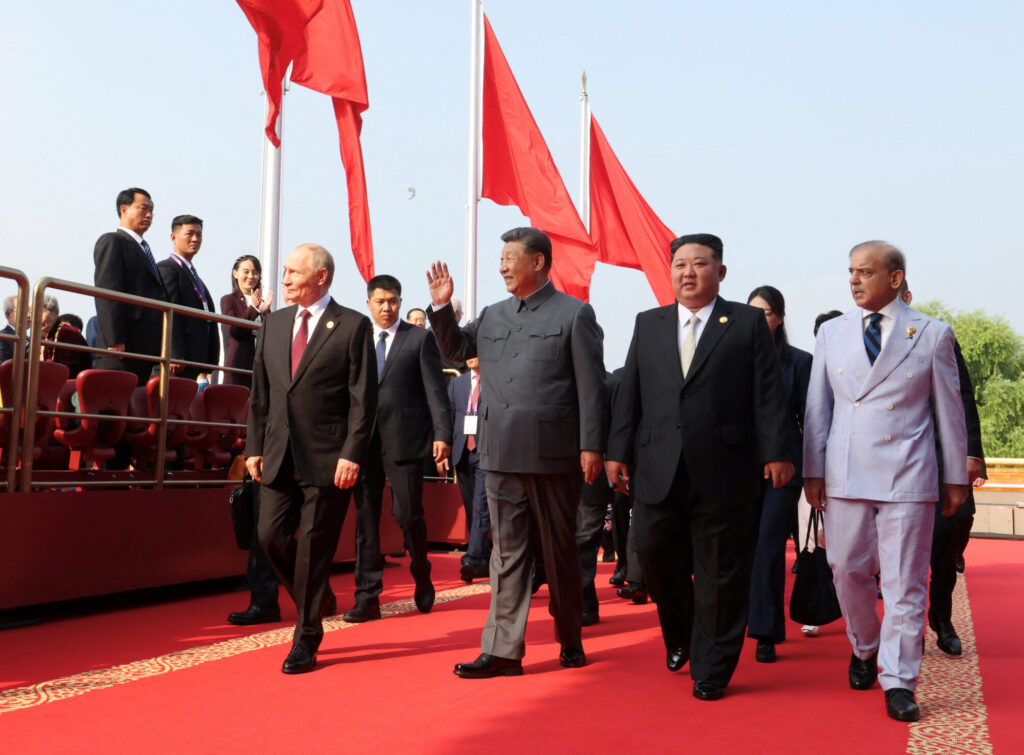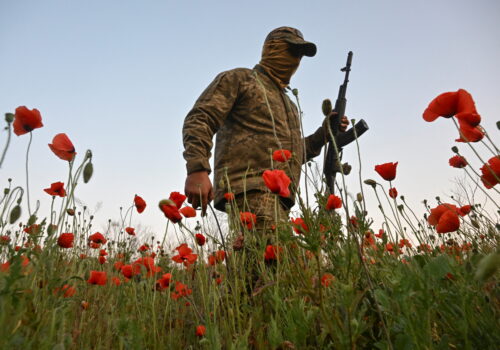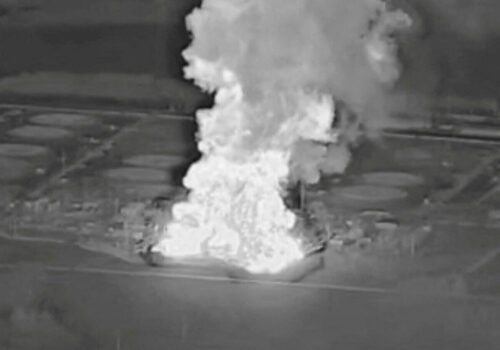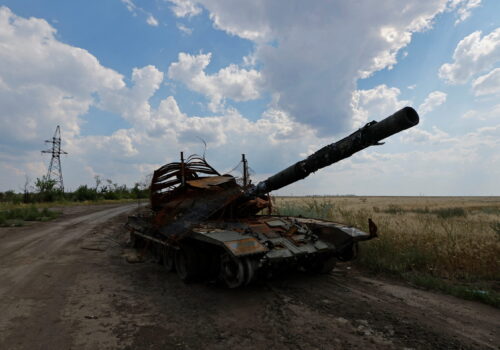The outlines of a new global order were on display in China last week as Chinese President Xi Jinping played host to more than twenty leaders from non-Western countries. The visiting dignitaries were attending a series of events that aimed to showcase China’s growing superpower status while also highlighting continued support for Russia in its confrontation with the West.
One of China’s most prominent guests was Russian President Vladimir Putin, who was accorded a place of honor alongside the Chinese leader at a military parade in Beijing to mark eighty years since the Japanese surrender and the end of World War II. On the eve of the parade, Indian Prime Minister Narendra Modi was pictured in friendly discussion with Putin and Xi at the Shanghai Cooperation Organization summit in Tianjin.
The optics coming out of China were unmistakable. While the main message was one of Chinese economic and military might, the Tianjin summit and Beijing parade also allowed China, India, North Korea, and others to underline their continued backing for Russia and their rejection of Western efforts to isolate Vladimir Putin over the invasion of Ukraine.
Stay updated
As the world watches the Russian invasion of Ukraine unfold, UkraineAlert delivers the best Atlantic Council expert insight and analysis on Ukraine twice a week directly to your inbox.
The Chinese and Russian leaders held a series of meetings during Putin’s visit, with Xi hailing his Kremlin counterpart as an “old friend.” This warm welcome came as no surprise. While China officially claims to have a neutral stance toward the Russian invasion of Ukraine, Beijing stands accused of playing a pivotal supporting role in the Russian war effort. Since 2022, China has emerged as the key client for Russian energy exports, helping the Kremlin to compensate for the loss of European markets. Chinese companies also reportedly provide “nearly 80 percent” of the sanctioned dual-use items Russia needs to continue the war.
China and Russia indicated their commitment to further energy sector cooperation by signing a deal to build the long-delayed Power of Siberia 2 gas pipeline connecting the two countries. While the agreement leaves a number of key questions unanswered, Moscow is signaling that it has energy export markets beyond Europe. Even if only smaller oil and gas projects move forward, they could prove jointly consequential for the two countries.
North Korean leader Kim Jong Un joined Xi and Putin for the Beijing military parade and used the occasion to reaffirm his “full support” for Russia, which he framed as a “fraternal duty.” While China continues to deny directly supporting the Russian war effort, North Korea has reportedly provided Russia with over 12 million rounds of artillery, rocket launchers, self-propelled guns, over 100 ballistic missiles, vehicles, and other forms of heavy artillery, while also sending around 15,000 soldiers to fight alongside the Russian army. By summer 2025, Pyongyang was supplying up to 40 percent of the ammunition used by Russia in Ukraine, according to Ukrainian military intelligence chief Kyrylo Budanov.
Eurasia Center events

India’s Modi also displayed warm ties with Putin, praising his “excellent” bilateral meeting with the Russian leader in Tianjin. Delhi has stressed the need for peace in Ukraine while emphasizing a business-focused relationship with Russia, but India has recently faced a Trump administration backlash over the country’s expanding imports of Russian energy resources. Since the start of the invasion, India’s Russian crude purchases have risen dramatically. In 2024, Russian crude represented around 40 percent of Indian imports, up from just 3 percent three years earlier.
Modi and Putin came together in China against a backdrop of tariffs imposed by the United States in response to India’s continued purchase of Russian oil, a move slammed by Delhi as “unfair, unjustified, and unreasonable.” Amid mounting tensions with the US, Modi’s very public show of support for Putin was interpreted by many as a calculated act of defiance.
None of this went unnoticed in Western capitals. Indeed, numerous politicians and commentators saw events in China as confirmation that an “anti-Western alliance” was taking shape, with Beijing and Moscow leading the way. The most striking response came from US President Donald Trump. “Looks like we’ve lost India and Russia to deepest, darkest China. May they have a long and prosperous future together,” the US leader quipped on social media. While Trump later walked this comment back in regard to India, he repeated his “disappointment” with Delhi over its Russian oil purchases.
Not everyone is convinced by talk of a new global order. Skeptics noted that beyond the pomp and pageantry, last week’s events in China did not produce much in the way of concrete results. The single biggest breakthrough was the agreement over a new Russia-China pipeline, but even this was far from conclusive. Meanwhile, although China, Russia, and India may be able to find common ground in their mutual dislike of Western dominance, they also disagree on a wide range of important issues.
It is still too early to proclaim the emergence of a fully-fledged anti-Western alliance, but major geopolitical shifts are clearly underway that will shape the global order for decades to come. In the short term, the support of China, India, and North Korea for Russia’s war in Ukraine will allow the killing to continue while undermining Trump’s efforts to pressure the Kremlin into ending the invasion.
Katherine Spencer is a program assistant at the Atlantic Council’s Eurasia Center.
Further reading
The views expressed in UkraineAlert are solely those of the authors and do not necessarily reflect the views of the Atlantic Council, its staff, or its supporters.

The Eurasia Center’s mission is to enhance transatlantic cooperation in promoting stability, democratic values, and prosperity in Eurasia, from Eastern Europe and Turkey in the West to the Caucasus, Russia, and Central Asia in the East.
Follow us on social media
and support our work
Image: Russian President Vladimir Putin, Chinese President Xi Jinping, North Korean leader Kim Jong Un and Pakistan's Prime Minister Shehbaz Sharif arrive at the Tiananmen Gate for a military parade marking the 80th anniversary of the end of World War Two, in Beijing, China. September 3, 2025. (cnsphoto via REUTERS)




